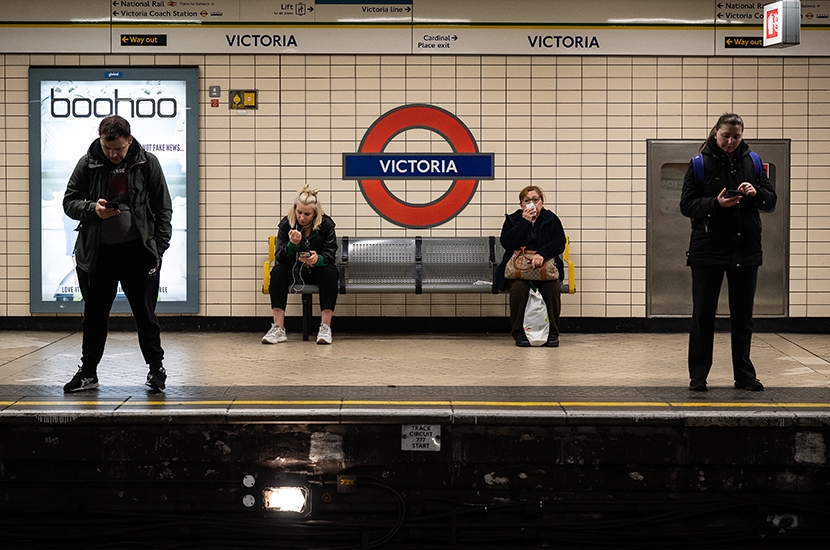Our Plan is entirely new, comprising – 1. The whole News of the Week: selected, sifted, condensed and arranged as to be readable throughout. 2. A full and impartial exhibition of all the leading Politics of the Day. 3. A separate Discussion of Interesting Topics of a general nature, with a view to instruction and entertainment at the same time. 4. A Department devoted to Literatures… 5. Dramatic and Musical Criticism. 6. Scientific and Miscellaneous information.
— R.S. Rintoul’s announcement of a new weekly, July 1828
In the history of publishing, no magazine has ever printed a 10,000th issue. Until now. The Spectator is unusual not only in that it is the world’s oldest weekly, but that it still follows the formula that R.S. Rintoul set out in 1828: art and literature and culture should command as much attention as politics, foreign affairs and economics. Rintoul feared that his project was too romantic — and expensive — to be a commercial success. As he wrote to a friend, ‘mere ordinary success will not support The Spectator’.
The story of his magazine has been anything but ordinary. Whether fighting for the 1832 Reform Act or campaigning for the decriminalisation of homosexuality as early as the 1950s, we have often been at the vanguard of political reform. But the magazine itself has changed very little. Rintoul’s basic belief — that readers enjoy a variety of topics, including robust but civil debate — has proved as relevant to the 21st century as to the 19th. The digital era, remarkably enough, has brought more subscribers than ever to the printed magazine. We thus reach this milestone with greater sales than at any point in our history.
This magazine’s great battles have been fought by advocating trust in individuals and communities
There were plans to invite readers and writers to the Guildhall to raise a glass. But we now find ourselves in circumstances that no one could have imagined even a few months ago. The country is in lockdown, children cannot go to school, the economy is in freefall, at least a million more people are unemployed. The Prime Minister fell victim to the pandemic and is now recuperating, leaving his government paralysed.
There has been much coverage of the Office for Budget Responsibility’s estimate that we’re midway through the worst economic downturn in a century. But very little attention has been given to what the same forecast goes on to envisage: the strongest recovery for three centuries, with unemployment falling by 5,500 a day. And the economic damage being repaired in full, with the economy surging by 17 per cent next year.
Might this be so? The Bank of England thinks not: its prediction is of longer-lasting economic and social damage. The problem, it says, will be fear. Ministers agree. Some worry about No. 10’s messaging: that the language used to enforce the lockdown is so unequivocal, so forceful, that it will be hard to soften. ‘Stay home, protect the NHS, save lives’ is difficult to reconcile with a plea to go to work. The task will be to replace fear with hope. Boris Johnson is better suited to this role than any of his recent predecessors: his inclination has always been to favour trust and boldness. The question is whether he trusts his own instincts now.
If he seeks to pay off the £200 billion costs of the lockdown by growing the economy, rather than another decade of austerity, a new strategy will be needed. People will need to be persuaded, not just cajoled, to rejoin the economy and society. This will mean learning to live with Covid-19. It’s unlikely that we will be able to rid ourselves of it entirely. More probably it will, like swine flu, join the familiar viruses swirling around the country and be regarded as a grim but manageable risk.
But how to make the transition? One next step should be making the lockdown voluntary, not mandatory. People can be asked — not ordered — to be careful. To keep their distance, not take undue risks. Return to work, where it’s safe to do so. Send young children back to school. Sweden has tried this approach and found a strong public response. Travel to Easter holiday hotspots was down 94 per cent; city streets, even now, are almost deserted. Sweden’s logic is that economic repair can happen more quickly if the pandemic is controlled by public consensus, with liberties protected.
So many of the great decisions in British political history come back to one crucial question: how much trust should the government place in the public? This magazine’s great battles — over parliamentary reform, free trade and economic liberalisation — have been fought by advocating trust in individuals and communities. That case is now stronger than ever. Lockdown has shown citizens reacting swiftly and responsibly to the crisis, not only strengthening but also building links within their communities.
After the devastation of the first world war, The Spectator argued that the social and economic outlook for Britain would be overwhelmingly depressing ‘if we were not a nation who have been proved over and over again to have the power of resurrection’. The same is true now. It could be that we are past the worst of this pandemic. We should not lose too much time before the job of repair and renewal begins.





Comments